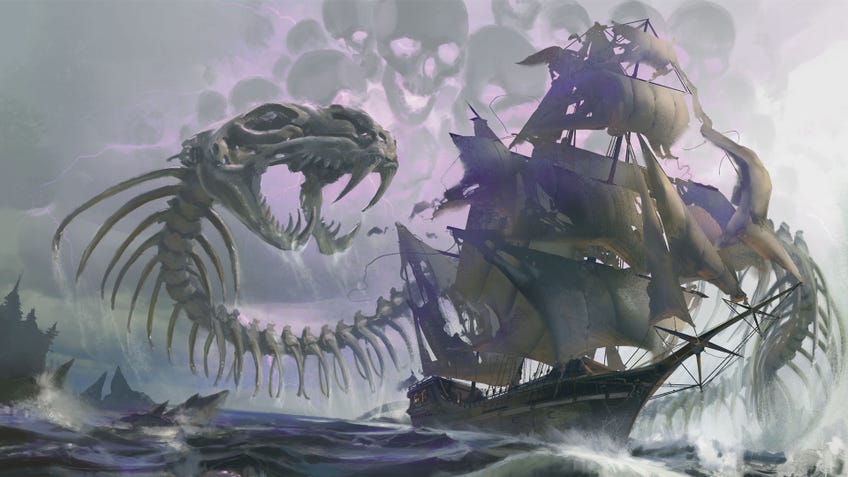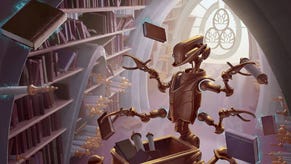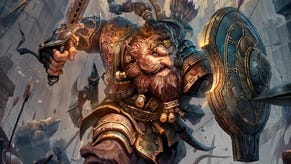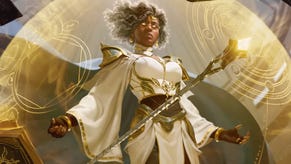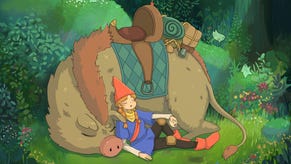D&D maker tightens its grip on third-party RPG books with reported OGL changes
Thousands of creators and fans angered by what’s proposed in the leaked document.
Changes to the licence underpinning Dungeons & Dragons could spell trouble and disruption for tabletop RPGs designed around its ruleset. A leaked version of the Open Gaming Licence (OGL), first reported by io9, supposedly alters several of the fundamental legal allowances laid out in the current document.
The OGL has existed in some form since 2000, when publisher Wizards of the Coast created a framework through which third-party companies could use D&D’s mechanics and rules - if not intellectual creations, such as the Forgotten Coast and Beholder - to create and sell their own tabletop games. The System Reference Document (SRD) and its explanations of general game concepts is still the most widely used section for commercial products.
The reported document, purported to be a December 2022 version of the OGL that will accompany the eventual release of codenamed One D&D, will deauthorise previous versions of the licence and force everyone to agree to the new language in OGL 1.1. It’s not clear how this squares with a previous post by D&D Beyond staff that promised all 5E creator content would remain “backwards compatible” with the RPG’s next iteration.
Such a deauthorisation would largely impact publishers whose catalogue consists chiefly of OGL-derived games, such as Pathfinder maker Paizo, Green Ronin, MCDM and Kobold Press. Some of these companies are already reacting to the news with a business pivot - Kobold Press recently announced a new tabletop ruleset called Core Fantasy that will power its official releases in a post-5E tabletop world.
The leaked OGL licence, which was also provided to Dicebreaker by an anonymous source, seems to understand the fallout of this change, saying “the Open Game License was always intended to allow the community to help grow D&D and expand it creatively. It wasn’t intended to subsidize major competitors, especially now that PDF is by far the most common form of distribution.”
Another hit to larger publishers comes in the form of a proposed tiered earning system for those publishing under the commercial version of the OGL. Any company or crowdfunding project - successful or otherwise - that earns more than $750,000 will pay a 25% royalty on all earnings above that line. For example, a third-party publisher with net profits of $850,000 in 2024 would owe Wizards of the Coast $25,000 under the new OGL.
Criticism of this move explains that thin operating margins already force most non-Hasbro subsidiaries to rely on freelance labour to create and publish tabletop material; royalties will likely only exacerbate that financial crunch. Kickstarter projects will reportedly enjoy a smaller portion owed to Wizards of the Coast, something the crowdfunding giant negotiated for as its head of games John Ritter explained on Twitter.
If the leaked OGL is to be believed, all commercial creations will need to be registered through Wizards of the Coast, regardless of their success and earnings. This means agreeing to the “nonexclusive, perpetual, irrevocable, worldwide, sublicensable, royalty free licence” that the company can revoke at any point and for any reason, as long as it gives 30 days’ notice. The method by which creators will self-report isn’t specified, but it’s likely D&D Beyond, which Wizards of the Coast purchased in 2022, will be used in some fashion.
It should be noted this only applies to print and digital tabletop material released either commercially or for free. Anything else - videos, podcasts, actual plays, social media posts, art, plushes, etc. - use the more restrictive Fan Content Policy. One of the outstanding questions is how this supposed new OGL will affect those creators who maintain a Patreon or other subscription service, or who otherwise earn money through indirect means but still produce D&D-related content.
The changes proposed in the leaked licence will likely sail over the head of the casual player and fan, most of whom understand D&D as a brand and not a collection of rules, gameplay conventions and proper nouns affixed to collaborative roleplay. Wizards of the Coast and its owner Hasbro are likely relying on that, as the companies have been actively fostering D&D as one of its largest and most franchiseable brands.
But this will no doubt have an effect on the artists, writers and publishers comprising the vibrant ecosystem surrounding D&D, many of whom have signed open letters in protest, deriding the proposed changes to the licence and still worry about how they might continue to create in the future. Dicebreaker has reached out to Wizards of the Coast for comment but did not receive a reply prior to publication.
